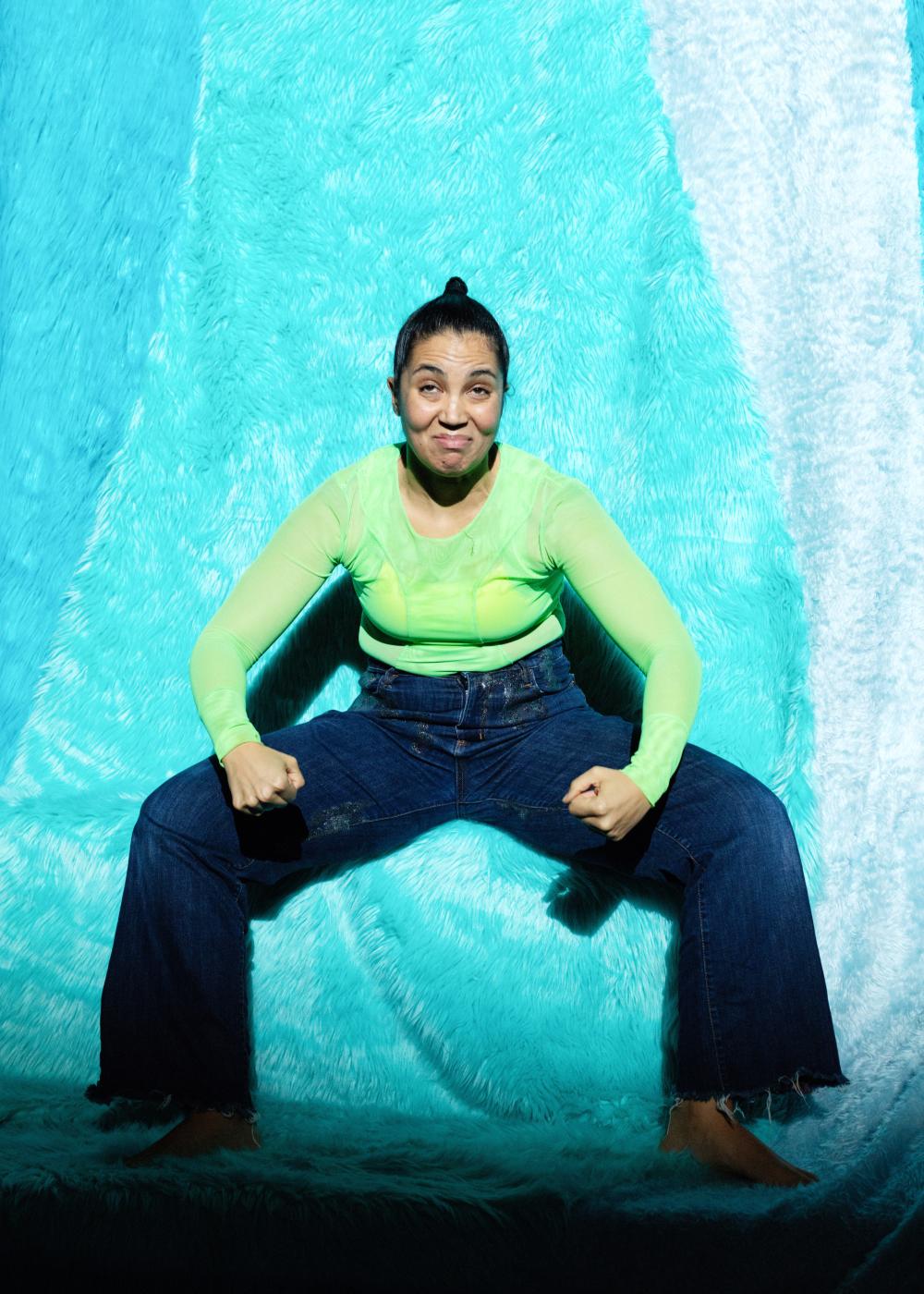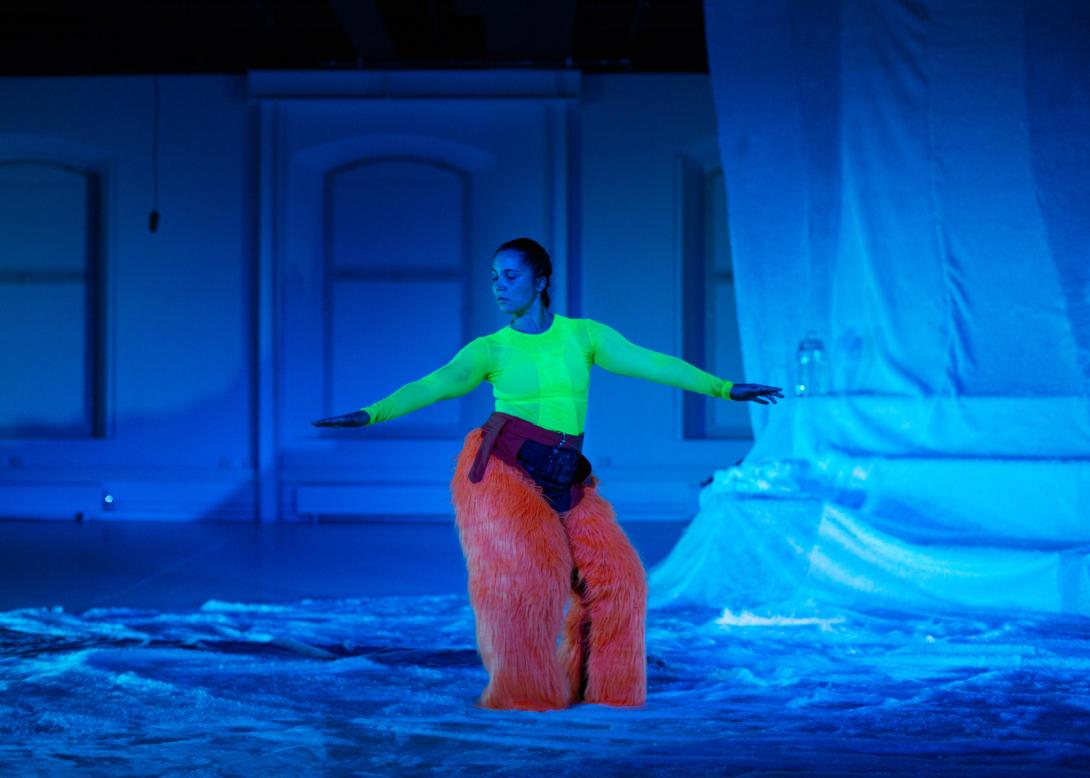Pleasure of resistance
Interview with BamBam Frost, by Eva Decaesstecker (Kaaitheater, January 2024)
Would you like to tell us a little about the process behind YES?
YES is the second piece I’ve made. My first piece, SORRY, premiered in 2018 and was about dances, aesthetics and expressions within pop culture. For YES, I wanted to dig deeper into that theme and unfold layers of the pop images we consume. I wanted to explore both real and imaginary characters and the histories around them. These pop cultural dances, together with the political climate of 2020, led me to the concepts of fiction, pleasure and change. Concepts that grew to be the foundation of how this work was created.
The quote “All that you touch, you change. All that you change, changes you. The only lasting truth is change” from Octavia Butler’s Parable of the Sower was very present in my process. As well as adrienne maree brown’s Pleasure activism and Audrey Lorde's Uses of the erotic - The erotic as power. Together with my artistic team, we kept asking ourselves how fiction, change and pleasure could guide us in exploring alternative ways of being and being together.
Why did you decide to make a solo for YES?
Even though I’m alone most of the time on stage, the piece does not feel like a solo. As I move through pop cultural images, I embody a series of characters and situations I have seen, read about or imagined, exploring the potential of pleasure within these. So in a way, it’s a piece where a bunch of others are present.
After the group piece SORRY, I was curious about creating a solo, I was longing for a slower process and another type of intimacy with the material. But at the same time, I was questioning if being alone on stage is the only thing I wanted to propose. At one point, I decided to invite my friend and colleague Lydia into this work. It became a solo with a guest. I wanted to dream, play and explore this concept with her. Together with Alexandra Tveit, she has also been helping me with dramaturgy and artistic support. I believe in figuring things out together.
Why the title YES?
The piece grew out of a long process where a big part of the production period was under 2020. The political climate at the time was harsh, Trump was still president and the far-right wing party grew to power in Stockholm. When I was introduced to pleasure as a concept of resistance, it resonated with me. It was needed to dare to imagine a place where other realities are possible. adrienne maree brown wrote about the word and the sensation of the yes, and for us in the creation process that word was connected to a feeling of trust in what we were doing, even though we didn’t know where we were going yet. The word also helped us to identify pleasure. Throughout the process, the concept of ‘yes’ started to get new meanings. The piece also reflects on persistence and the labour of working towards this pleasure. A movement that sometimes falters, pulls back.
Can you say something about the extremely fluffy set design?
The set design is from Lisa Berkert Wallard’s hand. At the one hand, it refers to water, its transformative state. How it moves, even destroys. We had the idea to have a waterfall on stage, in a clearly fictitious way. Combined with the need to translate the feeling of pleasure and softness, we ended up with a waterfall in a very artificial fabric. The kind of fabric that feels soft – even when you’re just looking at it. But also clearly is not water.
The friction between the fiction, the dreams, utopias and the clear fakeness (the dismantling of this fiction) is something that runs throughout the whole piece.

